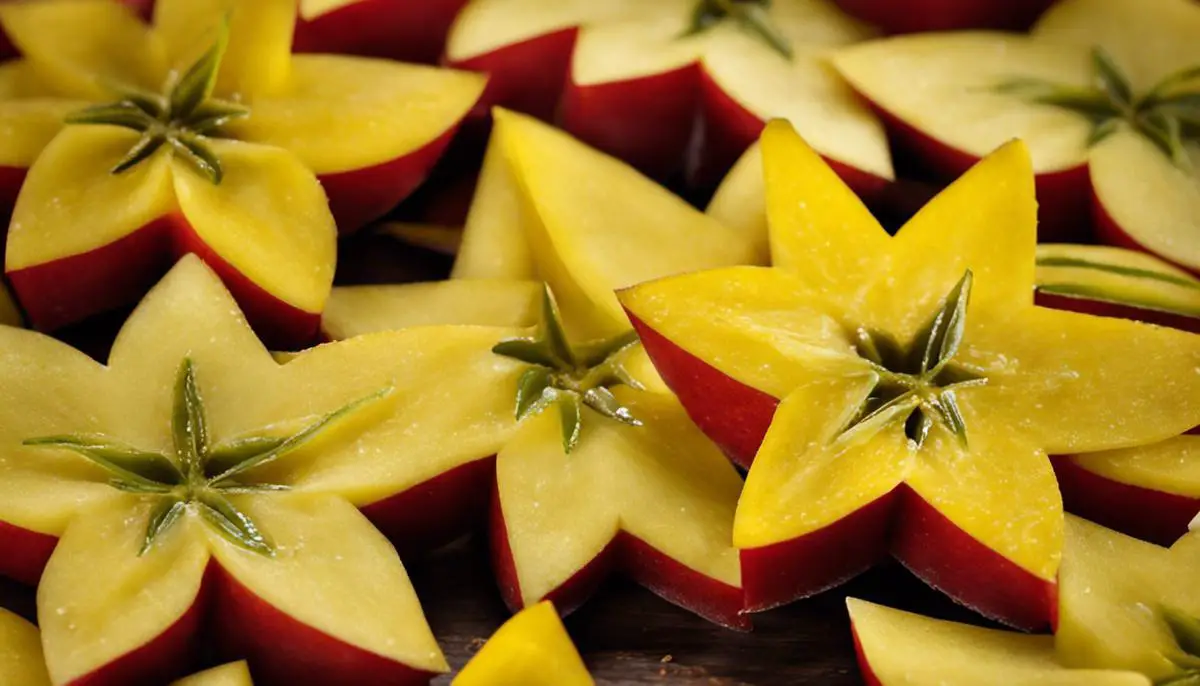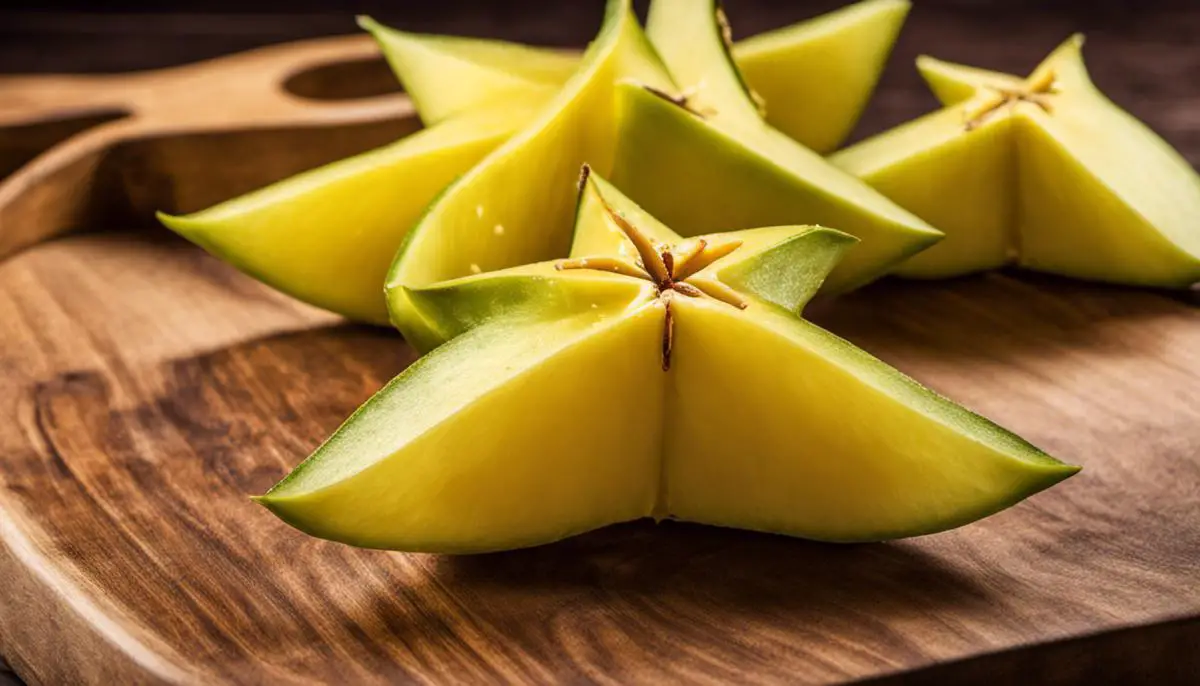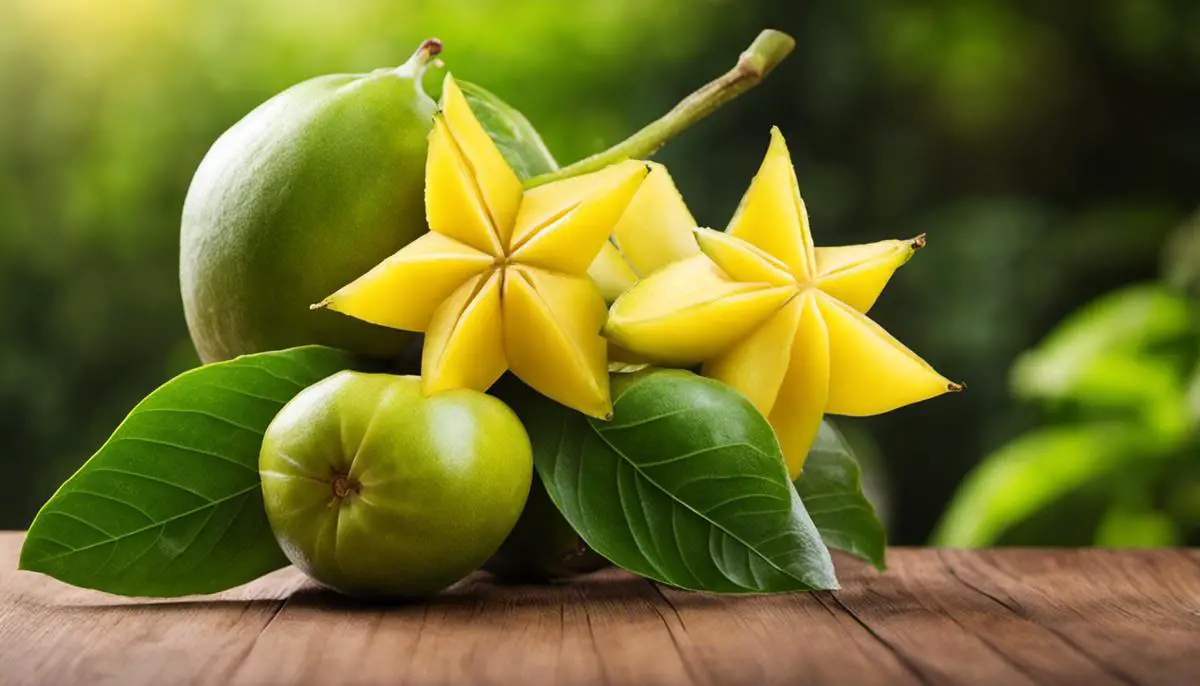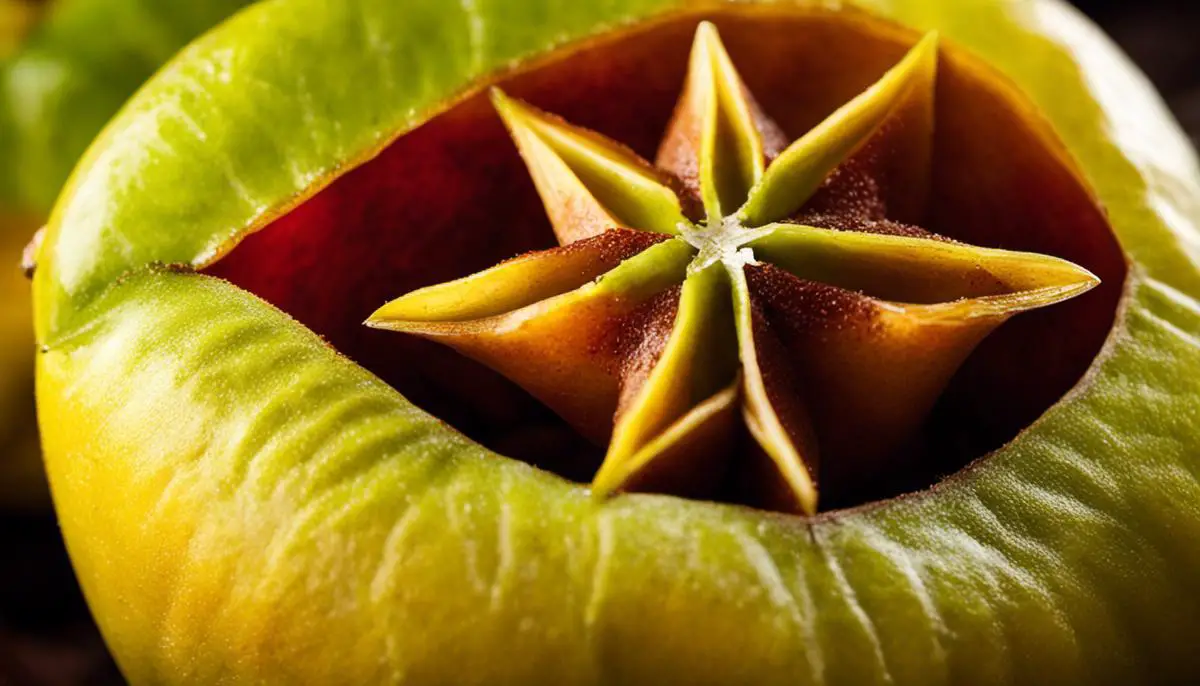Your ability to get a good night’s rest can be greatly affected by your diet. Certain foods are known to have sleep-enhancing qualities, one of these being carambola, more commonly known as star fruit. This exotic fruit, originally from Southeast Asia, is not only refreshing but is also packed with a host of nutrients, contributing to a variety of health benefits — improved sleep being one of them. This article delves into the world of carambola, exploring its origins, nutritional profile, and overall health advantages. More importantly, it focuses on how this star-fruit can possibly boost your sleep quality, underpinned by scientific research to provide you with a better understanding of this sleep-enhancing food.
Understanding Carambola
Understanding Carambola or Star Fruit
Carambola, also known as star fruit, is a unique tropical fruit that originated in Southeast Asia but is now grown in different parts of the world, including the United States. The fruit earns the nickname “star fruit” from the distinctive star shape that emerges when it’s cut crosswise. The fruit has a sweet, tangy flavor that is likened to a combination of citrus fruits such as oranges and lemons.
Nutritional Value of Carambola
Carambola is not only eminently palatable but also packed with wide-ranging macro and micronutrients. A single serving, which is approximately one medium-sized fruit, contains minimal calories and is free from saturated fats and cholesterol. It is dense in dietary fiber, supporting optimal digestive function and cardiovascular health. A rich source of Vitamin C, carambola helps boost the immune system and combat cell-damaging free radicals.
The fruit also offers a good amount of Vitamin A, which promotes eye health and skin health, and several B-vitamins, including riboflavin, niacin, and folate. Minerals in carambola include potassium, an essential nutrient that helps regulate heart function and blood pressure, and smaller amounts of zinc, iron, and magnesium.
Health Benefits of Carambola
Carambola’s health benefits extend beyond its rich nutrient profile. It contains antioxidant phytonutrients, including flavonoids and polyphenolic antioxidants, known to have anti-inflammatory and anticancer properties. The fruit also offers important plant compounds like quercetin, gallic acid, and epicatechin, which contribute to the prevention of chronic diseases.
Unlock Better Sleep with Carambola
The carambola, also commonly known as star fruit, packs more than just flavor. It’s gaining attention for its potential to enhance the quality of sleep. Numerous studies have identified high amounts of magnesium in carambola, a mineral that greatly affects sleep quality and duration. This is largely due to magnesium’s role in regulating neurotransmitters, which are responsible for transmitting signals throughout our nervous system and brain. Additionally, it helps control the hormone melatonin, known for guiding our body’s sleep-wake cycles. Keep in mind, a lack of sufficient magnesium may result in sleep disturbances such as insomnia.
But that’s not all; carambola is also a good source of vitamin B6, which further aids in improving sleep. Our bodies use vitamin B6 to produce serotonin, a neurotransmitter that plays a crucial role in mood regulation, stress, and anxiety management. Notably, serotonin converts into melatonin during the night, thus effectively initiating our sleep-wake cycle and encouraging rest.
Incorporating carambola into a balanced diet can deliver several essential nutrients proven to enhance sleep. Nonetheless, those with kidney conditions should be cautious due to carambola’s high oxalate content, which could increase kidney stone risks. As always, it’s beneficial to seek professional advice from a healthcare provider before making significant dietary adjustments.

Carambola and Sleep
Health Benefits and Sleep: A Closer Look at Carambola
Commonly dubbed as “star fruit” due to its distinct shape, carambola is a tropical fruit that has been celebrated not just for its unique taste, but also for its multifaceted nutritional profile and health benefits. Contributing to its rising popularity is a multitude of scientific research suggesting that carambola consumption can greatly enhance sleep quality, thanks to its abundant content of nutrients known for promoting better sleep.
Sleep-Enhancing Nutrients in Carambola
One of the key components that promote sleep in carambola is the hormone melatonin. Melatonin is known as the “sleep hormone,” because it aids your brain in recognizing when it’s time to sleep and wake. A study published in the Journal of Food Science revealed that fruit like carambola contains a significant amount of melatonin, and regular consumption can help adjust your body’s internal clock, improving overall sleep quality.
Besides melatonin, carambola also has high levels of magnesium and potassium. Potassium’s primary role revolves around facilitating the function of muscles and nerves, while magnesium plays a pivotal role in the production of the sleep-inducing hormone. A deficiency in either of these elements can lead to sleep disorders. A 2018 study published in the journal of Sleep revealed that dietary intake of magnesium and potassium could significantly improve sleep efficiency, sleep time, and sleep onset, especially in elderly people.
Moreover, carambola is rich in antioxidants, such as vitamin C and flavonoids, which have shown potential in supporting sleep. According to the University of Maryland Medical Center, vitamin C deficiencies have been linked to sleep deprivation. Meanwhile, flavonoids have been found to promote sleep via their interaction with gamma-aminobutyric acid (GABA) receptors in the brain, as per a study published in Nutrients.
Carambola’s Impact on Sleep Cycle
Understanding the sleep cycle is essential to appreciate how carambola could possibly enhance sleep. The sleep cycle consists of various stages defined by the EEG waves your brain produces. The cycle starts at light sleep, moving to deep sleep, then reaching REM sleep, repeating several times during the night. Consuming carambola can potentially optimize these cycles due to its melatonin, potassium, and magnesium content, reducing waking periods and increasing the deep sleep stages for uninterrupted, quality sleep.
Further, studies indicated that potassium could be beneficial for those who suffer from sleep disturbances like insomnia, with dietary potassium helping to regulate sleep patterns by aiding the function of muscles and nerves during sleep. Specifically, a 2017 study in the Journal of Orthomolecular Medicine suggested the importance of potassium in enhancing slow-wave sleep, the stage in the sleep cycle associated with memory consolidation and waking rejuvenation.
Conclusion
In line with current scientific studies, carambola – also known as star fruit – intake is generally associated with enhanced sleep quality. This is because carambola is rich in sleep-regulating nutrients such as melatonin, magnesium, potassium, vitamin C, and flavonoids. Including carambola in your everyday diet could potentially improve your sleep. However, it’s vital to remember that this fruit should be consumed as part of a balanced diet, and any dietary modifications should be discussed with a healthcare provider first.

How to Incorporate Carambola into Your Diet
Incorporating Carambola (Star Fruit) into Your Daily Diet
As a tropical fruit packed with nutrients, carambola is not just delicious, but beneficial for your health, particularly when it comes to improved sleep. Introducing it into your daily diet can be done in several ways; you can add it into salads, blend it into smoothies, or enjoy it as a standalone snack. For your convenience, here are some easy-to-follow recipes:
- Star Fruit Salad: Chop a carambola into cubes and mix it with a handful of mixed greens, cherry tomatoes, and fresh mozzarella. Dress it with your favorite vinaigrette. The carambola’s subtle sweetness and crisp texture will provide a refreshing twist to your salad.
- Star Fruit Smoothie: Into a blender, add a ripe carambola, a banana, and a cup of your preferred yogurt or milk. You may include a dollop of honey for additional sweetness. This flavorful smoothie serves as a nutritious, sleep-promoting dessert or late-night snack.
- Baked or Grilled Star Fruit: Cut a carambola into slices and arrange them on a baking sheet or grill. Lightly drizzle with olive oil and a pinch of cinnamon for a warm, sleep-friendly delicacy.
Optimal Consumption Time
For the best sleep-enhancing effects, consider consuming carambola a few hours before your bedtime. The fruit’s high content of magnesium and vitamin B6 aids in the production of melatonin, a hormone that helps regulate sleep. Remember, consuming carambola right before sleep may disrupt your sleep due to digestive activities.
Side Effects and Precautions
Despite these benefits, one must exercise caution when incorporating carambola into their diet. Individuals with kidney problems should avoid carambola, as it contains oxalates that can be harmful to those with impaired kidney function. The fruit can also interact with certain medications, so ensure to consult with a healthcare provider prior to including it in your regular diet.
Also, note that moderation is key. While beneficial, consuming excessive amounts of carambola can lead to nausea, vomiting, and even insomnia – the opposite of the desired effect. To avoid these potential side effects, limit your consumption to one to two medium-sized fruits per day.
In conclusion, consuming carambola can be beneficial for promoting better sleep, if integrated properly and thoughtfully into your diet. Keep in mind the potential side effects, and ensure to consult with your healthcare provider if you have any concerns.

Carambola, with its rich array of nutritional properties, offers a refreshing, tasty, and simple way to help regulate your sleep. Incorporating this star fruit into your daily diet could be the key to achieving the restful night’s sleep you have been longing for. With ideas on how to safely integrate carambola into your meals and knowledge on when it’s the best time to consume it for optimal sleep-boosting effects, you are now equipped to embark on a journey towards better, more rejuvenating sleep. Just remember, it’s crucial to be aware of potential side effects and always consult a healthcare professional if unsure about any new dietary changes. So why not give carambola a try, and experience the starry benefits it could bring to your sleep?
